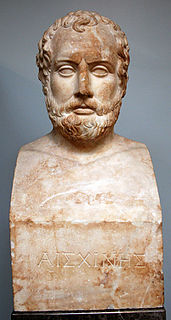A Quote by Fisher Ames
A government by the passions of the multitude, or, no less correctly, according to the vices, and ambitions of their leaders is a democracy.
Related Quotes
Remember, democracy never lasts long. It soon wastes, exhausts, and murders itself. There never was a democracy yet that did not commit suicide. It is in vain to say that democracy is less vain, less proud, less selfish, less ambitious, or less avaricious than aristocracy or monarchy. It is not true, in fact, and nowhere appears in history. Those passions are the same in all men, under all forms of simple government, and when unchecked, produce the same effects of fraud, violence, and cruelty.
Thus, experience has ever shown, that education, as well as religion, aristocracy, as well as democracy and monarchy, are, singly, totally inadequate to the business of restraining the passions of men, of preserving a steady government, and protecting the lives, liberties, and properties of the people . . . . Religion, superstition, oaths, education, laws, all give way before passions, interest, and power, which can be resisted only by passions, interest, and power.
Tis pleasant purchasing our fellow-creatures; And all are to be sold, if you consider Their passions, and are dext'rous; some by features Are brought up, others by a warlike leader; Some by a place--as tend their years or natures; The most by ready cash--but all have prices, From crowns to kicks, according to their vices.
What a mistake to suppose that the passions are strongest in youth! The passions are not stronger, but the control over them is weaker! They are more easily excited, they are more violent and apparent; but they have less energy, less durability, less intense and concentrated power than in maturer life.
But are sailors, frequenters of fiddlers' greens, without vices? No; but less often than with landsmen do their vices, so called, partake of crookedness of heart, seeming less to proceed from viciousness than exuberance of vitality after long constraint: frank manifestations in accordance with natural law.
In the United States the government has become less important. So, it's democracy, but as each year passes it seems that the government plays less of a role in people's lives, and so they're living in whatever situation their employment imposes upon them more than they're living in a grand political system.










































